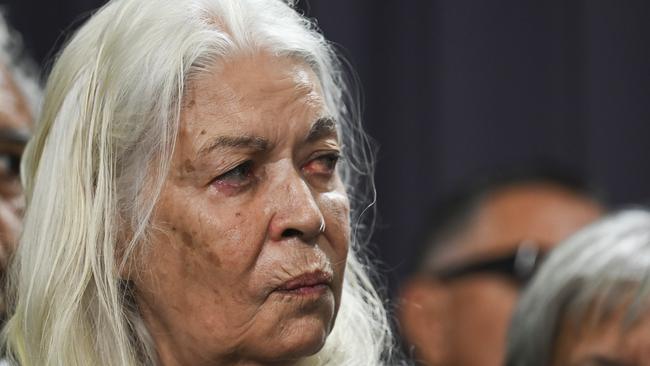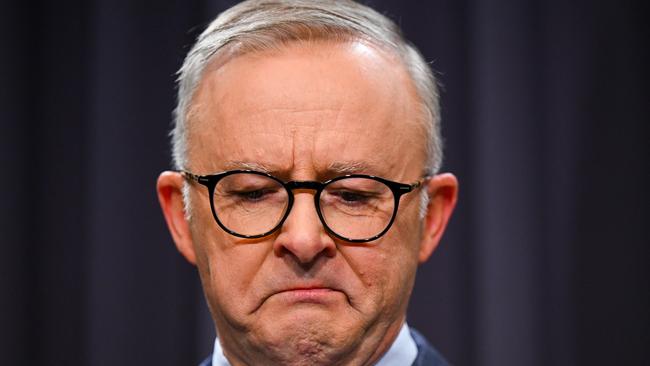Akerman: Labor’s obsession with a race-based Indigenous Voice will trample key tenets of democracy
Camouflaging the Voice referendum as a simple recognition of Indigenous Australians in the Constitution is a massive con, argues Piers Akerman.
Opinion
Don't miss out on the headlines from Opinion. Followed categories will be added to My News.
With quivering lips and teary eyes, Prime Minister Anthony Albanese capitulated to radical power-hungry activists pushing the Voice and outlined a plan to further split the nation on racial lines.
Camouflaging the referendum as a simple recognition of Indigenous Australians in the Constitution is a massive con. The question would hand a racially-selected, minority-elected body to engage with any policy decision.
Despite the more than $30bn annually spent on Indigenous Australians, a group of largely urban-based people who identify as Aboriginal are demanding more power than all other members of the community to construct policy.
It is a fact that we already have a two-tier system with more than 1000 agencies purporting to represent Indigenous Australians.
It is also true that historically we have had numerous bodies providing advice on Indigenous affairs to the federal government and they have failed, despite the jaw-dropping claim from Voice to Parliament advocate Marcia Langton to the contrary.

Numerous legal experts, including two former High Court justices, have already made it clear that if the referendum on the Voice is successful, decisions will be taken to the courts.
In short, it will become a lawyers’ picnic because those elected to the elite Indigenous-only group will have the power to make and deliver proposals to the executive, not just to the parliament.

No cabinet ministers have the right to make challenges to the High Court about decisions they disagree with but this proposed body will.
The High Court, as currently constituted, is no protection from the emotive thinking of the woke generation as its decision in the Love v Commonwealth case demonstrated with its view that Indigenous Australians “have a special cultural, historical and spiritual connection with the territory of Australia”.
But as Sir Walter Scott wrote over two centuries ago in his poem Lay of the Last Minstrel: “Breathes there the man, with soul so dead,
“Who never to himself hath said,
“This is my own, my native land!”
Don’t all Australians have the same connection with their country, or has the High Court now assumed the role of keeper of only Indigenous Australians?

Albanese and Minister for Indigenous Australians Linda Burney refused to meet with a group of Indigenous leaders who had travelled from remote areas to meet them in Canberra which demonstrated how open they are to all Indigenous voices.
In attempting to shame those who are thinking of rejecting the Voice proposal, Albanese said other nations would think less of Australia if the referendum failed. Yet most large nations in our immediate region are already divided on racial lines.
Malaysia gives preference to Bumiputeras, ethnic Malays, over all other citizens across a range of economic benefits and tangible advantages. There are quotas for Malays with regards to scholarships, educational or training privileges, positions in the civil service, special facilities, permits or licences for trade or business activities.
Yet Labor wants us to install the same sort of racial preference in our almost-unchangeable Constitution.
For those who deny Indigenous Australians get special benefits, consider the recent announcement by the Australian Space Agency, NASA and Monash University of a new program, the National Indigenous Space Academy, that will give Indigenous Australian university students the opportunity to study at NASA’s Jet Propulsion Laboratory.
Don’t get me wrong. I know there were Aboriginals in Australia when the First Fleet arrived but it was a day which heralded the enlightenment, not the enslavement, of the hunter-gatherers present.





